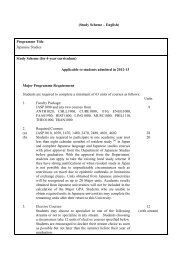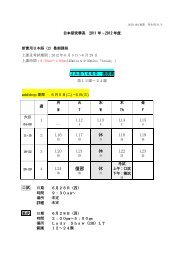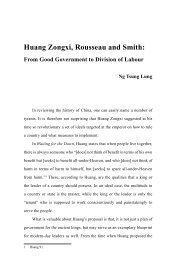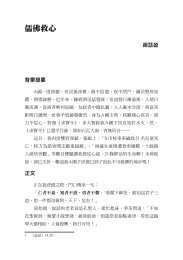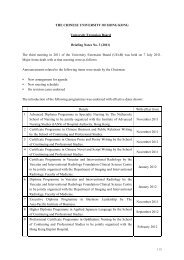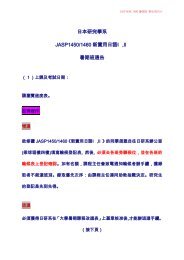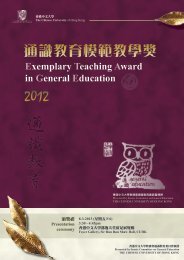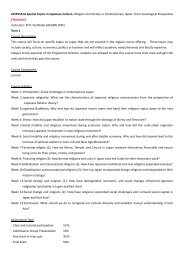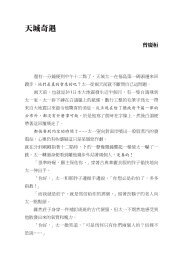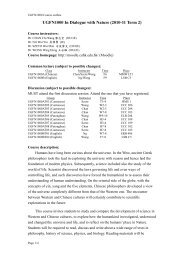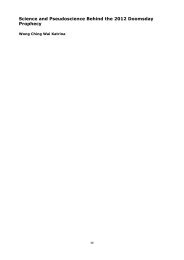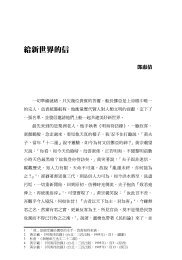ä¸è¼å ¨æ¸ - The Chinese University of Hong Kong
ä¸è¼å ¨æ¸ - The Chinese University of Hong Kong
ä¸è¼å ¨æ¸ - The Chinese University of Hong Kong
Create successful ePaper yourself
Turn your PDF publications into a flip-book with our unique Google optimized e-Paper software.
Special Topic: Assessment in <strong>University</strong> General Education Program<br />
(e.g., through examinations). Affective learning outcomes can, nevertheless,<br />
still be assessed in a variety <strong>of</strong> ways. In fact, social psychologists have<br />
worked to define and measure attitudes and values for well over 50 years<br />
(Miller, 2005).<br />
Finally, and perhaps most pervasively, affective learning has suffered<br />
from benign neglect, wherein faculty have failed to identify and describe<br />
their legitimate aims for students’ affective learning (Colby & Sullivan,<br />
2009; Pierre & Oughton, 2007; Shephard, 2008). <strong>The</strong> affective domain is<br />
“messy and unpredictable” relative to the cognitively oriented classroom,<br />
leading to the avoidance <strong>of</strong> uncertainty. This failure to attend to affective<br />
learning outcomes may also result from fear associated with these learning<br />
outcomes. Shephard (2008), for example, argued that some individuals avoid<br />
specifying student affective learning outcomes because they are afraid <strong>of</strong><br />
being accused <strong>of</strong> indoctrination or brainwashing. Regardless <strong>of</strong> the cause,<br />
affective learning has been ignored by large segments <strong>of</strong> the pr<strong>of</strong>essoriate.<br />
<strong>The</strong> critical importance <strong>of</strong> affective learning in “whole-person development”<br />
can no longer be ignored in 21 st century higher education.<br />
Rather than abandoning affective learning outcomes in favor <strong>of</strong> strictly<br />
cognitive ones, we must recognize the interdependence <strong>of</strong> learning that is<br />
occurring and make efforts to assess each type <strong>of</strong> outcome. Current and<br />
future university students are expected not only to attain certain factual<br />
knowledge and problem-solving skills, but are increasingly expected by<br />
employers and by society more generally, to develop dispositions and<br />
personal characteristics that will help them succeed in our rapidly changing<br />
world. <strong>The</strong> challenge becomes not whether affective learning outcomes can



